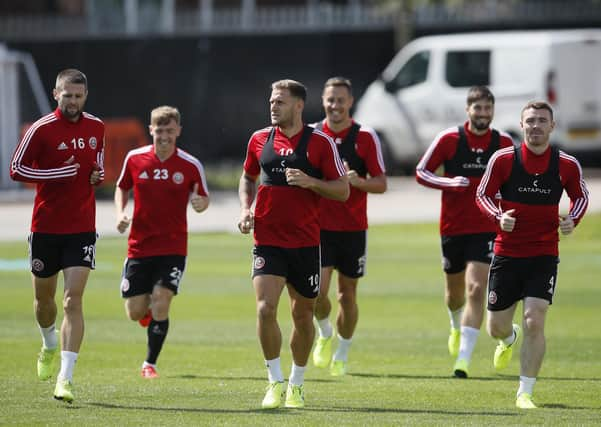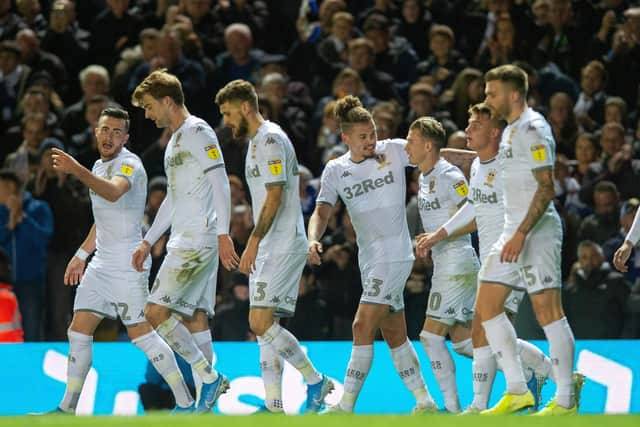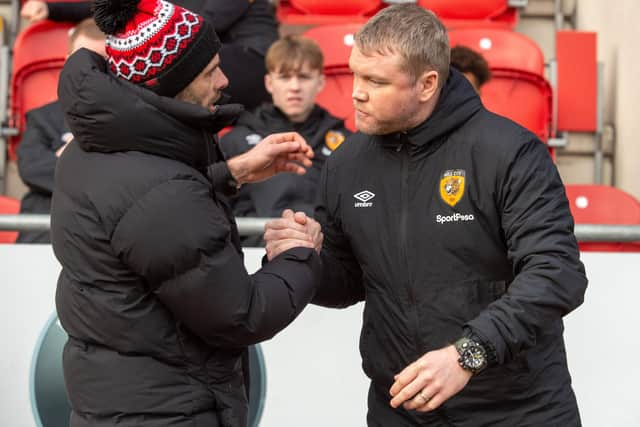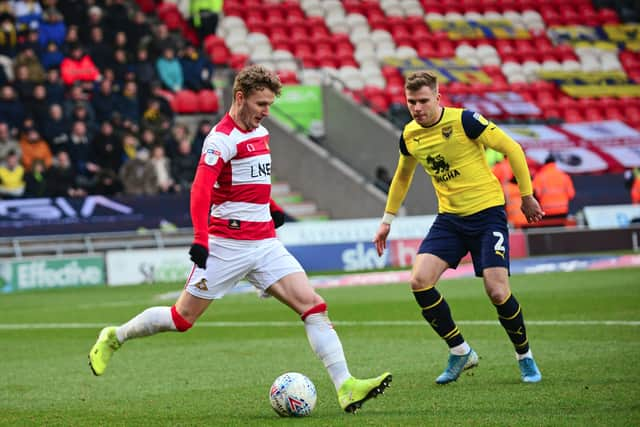Healthy minds vital for footballers to get through coronavirus crisis lockdown


Mark Bowden works individually with a number of players across Yorkshire’s league clubs, and has been impressed by what he has heard about McCann.
Most teams have WhatsApp groups which help maintain camaraderie while no longer training together, but Bowden says visual contact is important too.
Advertisement
Hide AdAdvertisement
Hide AdMcCann has introduced this at Hull, though he is by no means alone. Adam Reach told The Yorkshire Post Sheffield Wednesday have done similar, and last week Rotherham United tweeted part of a stretching session on Zoom for Paul Warne and his players.


“The relationship between manager and players is important and based on interaction,” says Bowden. “We’re very social animals, and that produces brilliant neural transmitters which actually keep us mentally healthy.
“I’m not saying don’t play on the X-Box or watch TV, but where you can, interact with people too.
“Thirty or 40 years ago you couldn’t do that so easily but there are so many video groups now. I’ve been doing some one-to-one work with a Hull City player and he tells me Grant McCann’s got every single player on a group chat every day. Every club should be doing that, even down to under-12 and under-13 teams.
Advertisement
Hide AdAdvertisement
Hide Ad“If you have nothing else then WhatsApp is good but if you are on a video call you are seeing each other face to face. If you’re on WhatsApp you can be watching Netflix at the same time and not really concentrating on it.”


Bowden is careful not to reveal his clients, but players who say they use his book or his app – available for free during the lockdown HERE – include Doncaster Rovers’ Kieran Sadlier and Ben Whiteman, Middlesbrough’s Aynsley Pears, Shaun MacDonald of Rotherham United and Kelvin Mellor of Bradford City.
With the English leagues suspended indefinitely, professionals do not have a goal to work towards. Bowden has urged them to use the time to improve, not just tick over.
“Players need to remain active for their physical fitness but exercise is not just important for the body but hugely important for the brain too,” he argues. “We produce neural transmitters which allow us to be healthy.
Advertisement
Hide AdAdvertisement
Hide Ad“While we’re allowed to get out of the house for this one time a day to exercise it’s important we take advantage. And while they’ve got their regimes from their clubs to keep them physically healthy, it’s important they do stuff the rest of the time too.


“It’s very good to go out once a day but it’s no good if the rest of the time you’re just sat there playing on the PlayStation or watching television.
“I always talk to footballers about the two big parts of the brain. The ‘red brain’ is there for survival, it makes you feel anxious and stressed and rips away any opportunity you have of playing well. The green part of the brain is the most powerful. It allows you to perform better, feel better and produces more confidence and self-belief.
“It’s important you don’t focus on negative things – coronavirus, deaths, not playing football or being able to watch it. You have so much more control over your brain than you think.
Advertisement
Hide AdAdvertisement
Hide Ad“If you’re on the pitch and a shot goes astray, your thought processes cement it and you descend further into the red brain. Cortisol stress hormones can take away your mental healthiness. Positive thinking is very good for you and solution-focused thinking is infinitely better.”
In terms of what players can do to improve from the confines of their own home, Bowden recommends visualisation and more of the analysis they usually do with video clips of past performances on a weekly basis.
“Visualisation is something I do a lot with players,” he reveals.
“It strengthens the neural pathways and has the same effect as if you were actually doing a skill. Analysis has become really important in football but there are only two types you should be doing: What’s gone well and what can I improve on?
Advertisement
Hide AdAdvertisement
Hide Ad“A lot of players beat themselves up about what they did wrong. A centre-back was telling me his partner scored an own goal and was replaying it over and over in his mind. The next training session he pretty much scored a carbon copy.”
Bowden thinks clubs should do more to train players mentally, but says McCann is typical of a greater awareness.
“The top clubs have massive sports science departments analysing blood and everything else to make sure players are performing but the brain, which controls all that, isn’t worked on enough,” he argues.
“It’s getting there, but it needs more buy-in from players and managers because you can have everything working in your body but if you’re feeling down, everything can fall down.”
Comment Guidelines
National World encourages reader discussion on our stories. User feedback, insights and back-and-forth exchanges add a rich layer of context to reporting. Please review our Community Guidelines before commenting.